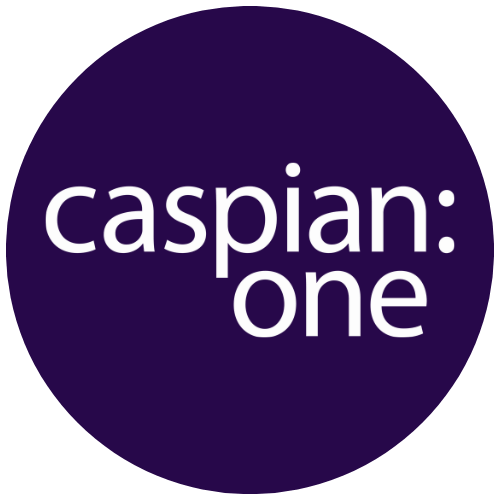
Global footprint
Caspian One reach clients and partners in financial centres across the world. Read more about Open Banking’s international evolution by selecting from the locations below.
Navigation: Open Banking APIs > Around the World

Global footprint
Caspian One reach clients and partners in financial centres across the world. Read more about Open Banking’s international evolution by selecting from the locations below.
Brazil // UK // Canada // USA // Mexico // Nigeria // Europe // India // Singapore // Australia // New Zealand // Hong Kong // Japan
Navigation: Open Banking APIs > Around the World
Brazil
The Brazilian Central Bank (BACEN) announced regulations for the adoption of open banking on May 4, 2020. These rules, along with the 2018 Data Protection Law and other payment-related rules that cover everything from electronic payments to anti-money laundering and clearing-house settlements, offer a legal framework to support the banking system's strong performance.
The implementation time for Open Banking in Brazil will be divided into four phases, each of which would see the banking and financial services sector gradually open up:
Phase 1 (February 1, 2021) – Information regarding products and services, as well physical locations, and other channels.
Phase 2 (August 13, 2021) – Customer data and transactional data.
Phase 3 (August 30, 2021) – Payments’ initiation and credit operations forward services.
Phase 4 (December 15, 2021) – Open Finance scope, including pension funds, foreign exchange, investments, and insurance products.
BRAZIL
The Brazilian Central Bank (BACEN) announced regulations for the adoption of open banking on May 4, 2020. These rules, along with the 2018 Data Protection Law and other payment-related rules that cover everything from electronic payments to anti-money laundering and clearing-house settlements, offer a legal framework to support the banking system's strong performance.
The implementation time for Open Banking in Brazil will be divided into four phases, each of which would see the banking and financial services sector gradually open up:
Phase 1 (February 1, 2021) – Information regarding products and services, as well physical locations, and other channels.
Phase 2 (August 13, 2021) – Customer data and transactional data.
Phase 3 (August 30, 2021) – Payments’ initiation and credit operations forward services.
Phase 4 (December 15, 2021) – Open Finance scope, including pension funds, foreign exchange, investments, and insurance products.
UK
Today, the UK is recognised as the leader in terms of Open Banking adoption. It started with a report published by the UK Competition and Markets Authority (CMA) in 2016, which determined that the 9x largest banks (known as the CMA9) were operating in a monopoly-like fashion, with minimal competition for customers. This was preventing new and innovative third-party providers (TPPs) from accessing the market; reducing the amount of choice and control people have over their money.
In response, the UK Government ruled that the CMA9 must allow licenced TPPs access to their data via a single security protocol. This new Open Banking ecosystem, governed by the Open Banking Implementation Entity (OBIE) - is allowing consumers to share transactional data securely, with authorised third parties.
Download > Lessons from London PDF
UK
Today, the UK is recognised as the leader in terms of Open Banking adoption. It started with a report published by the UK Competition and Markets Authority (CMA) in 2016, which determined that the 9x largest banks (known as the CMA9) were operating in a monopoly-like fashion, with minimal competition for customers. This was preventing new and innovative third-party providers (TPPs) from accessing the market; reducing the amount of choice and control people have over their money.
In response, the UK Government ruled that the CMA9 must allow licenced TPPs access to their data via a single security protocol. This new Open Banking ecosystem, governed by the Open Banking Implementation Entity (OBIE) - is allowing consumers to share transactional data securely, with authorised third parties.
Download > Lessons from London PDF
Canada
In Canada’s 2018 budget it was announced that the government would begin a consultation to review the merits of Open Banking for the Canadian banking sector. The Minister of Finance then appointed an Advisory Committee on Open Banking to guide the review, supported by a secretariat within the Department of Finance and with members that “will represent the broad interests of all Canadians”.
In June 2019, the Standing Senate Committee on Banking, Trade and Commerce released its report entitled “Open Banking: What It Mean For You”, which included a number of recommendations intended to lay the groundwork for the rollout of Open Banking in Canada.
CANADA
In Canada’s 2018 budget it was announced that the government would begin a consultation to review the merits of Open Banking for the Canadian banking sector. The Minister of Finance then appointed an Advisory Committee on Open Banking to guide the review, supported by a secretariat within the Department of Finance and with members that “will represent the broad interests of all Canadians”.
In June 2019, the Standing Senate Committee on Banking, Trade and Commerce released its report entitled “Open Banking: What It Mean For You”, which included a number of recommendations intended to lay the groundwork for the rollout of Open Banking in Canada.
United States of America
There is a large and established screen scraping market in the USA. Moves towards an Open Banking-style system have been led by the US’s bank payments and interoperability association, NACHA. NACHA’s API standardisation programme was announced late in 2017 with three areas of focus: fraud and risk reduction; data sharing; and payment access.
In addition, the Consumer Financial Protection Bureau’s 2017 data sharing principles encouraged banks to introduce APIs for sharing data but did not require them to do so.
USA
There is a large and established screen scraping market in the USA. Moves towards an Open Banking-style system have been led by the US’s bank payments and interoperability association, NACHA. NACHA’s API standardisation programme was announced late in 2017 with three areas of focus: fraud and risk reduction; data sharing; and payment access.
In addition, the Consumer Financial Protection Bureau’s 2017 data sharing principles encouraged banks to introduce APIs for sharing data but did not require them to do so.
Mexico
Mexico has largely adopted the UK’s implementation model but also plans to include paid-for premium APIs, from the outset. The law regulating Financial Technology Institutions (The FinTech Law) came into effect in March 2018, which mandates Open Banking and also provides stronger regulation for FinTechs. The government is finalising the overall approach for implementation.
Open Banking in Mexico is likely to be regulated by the National Banking and Securities Commission (Comisión Nacional Bancaria y de Valores or CNBV). Increased innovation and financial inclusion, rather than competition, are the main objectives. 42 million Mexicans are unbanked, according to Claudia del Pozo at impact innovation agency C-Minds, which is over 56% of the country’s population and “a huge challenge to Mexico”. CNBV is employing a phased approach to cover approximately 2300 financial entities.
MEXICO
Mexico has largely adopted the UK’s implementation model but also plans to include paid-for premium APIs, from the outset. The law regulating Financial Technology Institutions (The FinTech Law) came into effect in March 2018, which mandates Open Banking and also provides stronger regulation for FinTechs. The government is finalising the overall approach for implementation.
Open Banking in Mexico is likely to be regulated by the National Banking and Securities Commission (Comisión Nacional Bancaria y de Valores or CNBV). Increased innovation and financial inclusion, rather than competition, are the main objectives. 42 million Mexicans are unbanked, according to Claudia del Pozo at impact innovation agency C-Minds, which is over 56% of the country’s population and “a huge challenge to Mexico”. CNBV is employing a phased approach to cover approximately 2300 financial entities.
Nigeria
Open Technology Foundation, a not-for-profit organisation, launched Open Banking Nigeria (OBN) in 2018 in a bid to drive innovation and choice in the Nigerian banking sector. Its objective is to roll out open APIs and encourage banks and FinTechs to adopt open standards for API implementation. Unlike many other Open Banking regimes, OBN considers the UK standard over-engineered for Nigeria’s purposes.
They hope to draft their own standard that will be more appropriate for Nigeria and other countries in West Africa. OBN hopes that an API framework will reduce the cost of innovation to service providers and provide a good customer experience. Adédèjì Olówé, Trustee of Open Banking Nigeria, told us that he expected Open Banking to revolutionise the Nigerian banking sector and be a “huge boost” to the economy as a whole.
NIGERIA
Open Technology Foundation, a not-for-profit organisation, launched Open Banking Nigeria (OBN) in 2018 in a bid to drive innovation and choice in the Nigerian banking sector. Its objective is to roll out open APIs and encourage banks and FinTechs to adopt open standards for API implementation. Unlike many other Open Banking regimes, OBN considers the UK standard over-engineered for Nigeria’s purposes.
They hope to draft their own standard that will be more appropriate for Nigeria and other countries in West Africa. OBN hopes that an API framework will reduce the cost of innovation to service providers and provide a good customer experience. Adédèjì Olówé, Trustee of Open Banking Nigeria, told us that he expected Open Banking to revolutionise the Nigerian banking sector and be a “huge boost” to the economy as a whole.
Europe
PSD2 is the driving force behind bank data sharing in Europe. Unlike the UK, there is no mandated implementation body equivalent to the OBIE, and the banks have themselves sought to voluntarily design their own standards.
Different sets of standards have been proposed by standards bodies representing coalitions of European banks. These tend to be less prescriptive than the UK’s standards, with greater flexibility in the technical implementation and less focus on user experience.
EUROPE
PSD2 is the driving force behind bank data sharing in Europe. Unlike the UK, there is no mandated implementation body equivalent to the OBIE, and the banks have themselves sought to voluntarily design their own standards.
Different sets of standards have been proposed by standards bodies representing coalitions of European banks. These tend to be less prescriptive than the UK’s standards, with greater flexibility in the technical implementation and less focus on user experience.
India
India is already an accomplished player in Open Banking having launched the Unified Payment Interface (UPI) in 2016. Developed and managed by the National Payments Corporation of India (NPCI), the UPI facilitates inter-bank transactions through a robust API framework complete with a digital identity solution of the sort currently missing from most European and North American markets.
The Indian open banking initiative has not yet developed a data-sharing component. India’s Open Banking is built in part on Aadhar, the country’s national identity platform. As of March 2019, UPI is used by 142 banks, accounting for just under 800 million transactions a month with a combined value of US$19 billion.
INDIA
India is already an accomplished player in Open Banking having launched the Unified Payment Interface (UPI) in 2016. Developed and managed by the National Payments Corporation of India (NPCI), the UPI facilitates inter-bank transactions through a robust API framework complete with a digital identity solution of the sort currently missing from most European and North American markets.
The Indian open banking initiative has not yet developed a data-sharing component. India’s Open Banking is built in part on Aadhar, the country’s national identity platform. As of March 2019, UPI is used by 142 banks, accounting for just under 800 million transactions a month with a combined value of US$19 billion.
Singapore
Singapore is encouraging financial institutions to adopt APIs to promote innovation and interoperability. As in Hong Kong, the Monetary Authority of Singapore (MAS) is not taking an interventionist approach to Open Banking. As the Chief Data Officer of MAS has said, “the path toward Open Banking in the country will be more successful if industry players aren’t strong-armed into it”.
MAS and the Association of Banks in Singapore published a detailed API playbook to encourage more banks to participate in the initiative. Citibank, DBS, Standard Chartered and other banks have since launched their own API portals.
SINGAPORE
Singapore is encouraging financial institutions to adopt APIs to promote innovation and interoperability. As in Hong Kong, the Monetary Authority of Singapore (MAS) is not taking an interventionist approach to Open Banking. As the Chief Data Officer of MAS has said, “the path toward Open Banking in the country will be more successful if industry players aren’t strong-armed into it”.
MAS and the Association of Banks in Singapore published a detailed API playbook to encourage more banks to participate in the initiative. Citibank, DBS, Standard Chartered and other banks have since launched their own API portals.
Australia
Despite significant technical similarities between the UK and Australian standards, there are differences in coverage. This stems from the Australian government’s introduction of cross-sectoral Consumer Data Right legislation (CDR). The CDR will apply to a wider set of consumer data than banking data, which will soon be followed by energy data and telecommunications data, with the aim of creating data interoperability across different sectors. The Australian Open Banking implementation is focused on data only and not payments.
The Australian Competition and Consumer Commission (ACCC) has a supervisory role similar to that taken by the CMA in the UK, while working with bodies like the Australian Payments Network. Andy White, CEO of the Australian Payments Network, told us that “the regulatory stance is about a balance of stability and innovation but there is a desire for good competition with the rise of challenger banks.” Legislation to enact Open Banking is expected by the end of 2019.
AUSTRALIA
Despite significant technical similarities between the UK and Australian standards, there are differences in coverage. This stems from the Australian government’s introduction of cross-sectoral Consumer Data Right legislation (CDR). The CDR will apply to a wider set of consumer data than banking data, which will soon be followed by energy data and telecommunications data, with the aim of creating data interoperability across different sectors. The Australian Open Banking implementation is focused on data only and not payments.
The Australian Competition and Consumer Commission (ACCC) has a supervisory role similar to that taken by the CMA in the UK, while working with bodies like the Australian Payments Network. Andy White, CEO of the Australian Payments Network, told us that “the regulatory stance is about a balance of stability and innovation but there is a desire for good competition with the rise of challenger banks.” Legislation to enact Open Banking is expected by the end of 2019.
New Zealand
New Zealand is developing its Open Banking framework using “70-80%” of the UK standard. This is being driven by the voluntary cooperation of the major players in the market under the stewardship of the local payments association, PaymentsNZ. Similar to the UK, New Zealand’s pilot includes account information and payments, and will be executed under the guidance of its own Open Banking working group.
The main drive in New Zealand is for greater innovation in the sector. To quote Steve Wiggins, Chief Executive of PaymentsNZ, the aim is to“get more things happening in the market … [to] get alternatives to card rails going, more peer to peer activity, and more service solutions as a result of accessing account information and data.”
NEW ZEALAND
New Zealand is developing its Open Banking framework using “70-80%” of the UK standard. This is being driven by the voluntary cooperation of the major players in the market under the stewardship of the local payments association, PaymentsNZ. Similar to the UK, New Zealand’s pilot includes account information and payments, and will be executed under the guidance of its own Open Banking working group.
The main drive in New Zealand is for greater innovation in the sector. To quote Steve Wiggins, Chief Executive of PaymentsNZ, the aim is to“get more things happening in the market … [to] get alternatives to card rails going, more peer to peer activity, and more service solutions as a result of accessing account information and data.”
Hong Kong
The Hong Kong Monetary Authority (HKMA) published its Open API Framework for the Hong Kong Banking Sector in July 2018, setting out its intended approach to Open Banking. HKMA’s commentary outlines its intentions to move towards a “new era of smart banking”, and has so far allowed the industry to set its own standards without making it a regulatory requirement.
Citi announced six partnerships using open APIs in 2018, and the first API for product information was rolled out in 2019, focussing on public data such as deposit rates, credit card offerings, and service charges.
HONG KONG
The Hong Kong Monetary Authority (HKMA) published its Open API Framework for the Hong Kong Banking Sector in July 2018, setting out its intended approach to Open Banking. HKMA’s commentary outlines its intentions to move towards a “new era of smart banking”, and has so far allowed the industry to set its own standards without making it a regulatory requirement.
Citi announced six partnerships using open APIs in 2018, and the first API for product information was rolled out in 2019, focussing on public data such as deposit rates, credit card offerings, and service charges.
Japan
In Japan, May 2017, the Amended Banking Act introduced a registration system for TPPs and set the framework for collaboration between banks and TPPs. The act encouraged banks to open their APIs by 2020, enabling digital payments ahead of the Olympics.
There have also been voluntary partnerships between financial institutions to launch digital payment initiatives. However, adoption by third parties has been low, in part because of the difficulty banks and FinTechs have in negotiating contracts.
JAPAN
In Japan, May 2017, the Amended Banking Act introduced a registration system for TPPs and set the framework for collaboration between banks and TPPs. The act encouraged banks to open their APIs by 2020, enabling digital payments ahead of the Olympics.
There have also been voluntary partnerships between financial institutions to launch digital payment initiatives. However, adoption by third parties has been low, in part because of the difficulty banks and FinTechs have in negotiating contracts.
Our management team have extensive experience with tier 1 global Investment and Retail Banks, such as CIBC, RBC, Deutsche Bank, HSBC and Citibank.
Our management team have extensive experience with tier 1 global Investment and Retail Banks, such as CIBC, RBC, Deutsche Bank, HSBC and Citibank.













